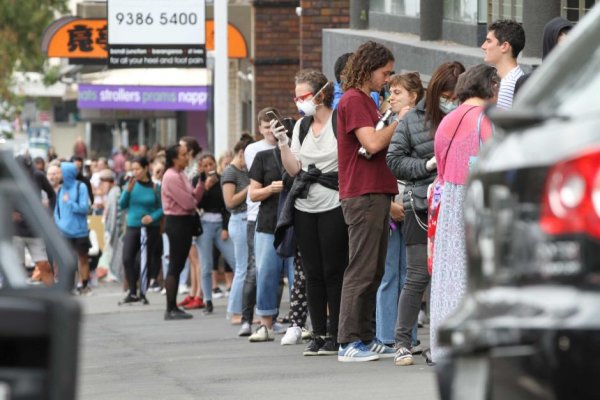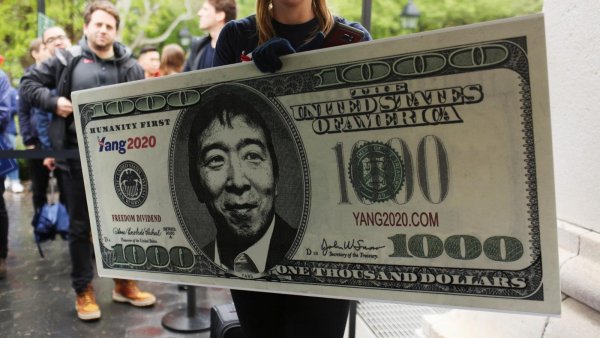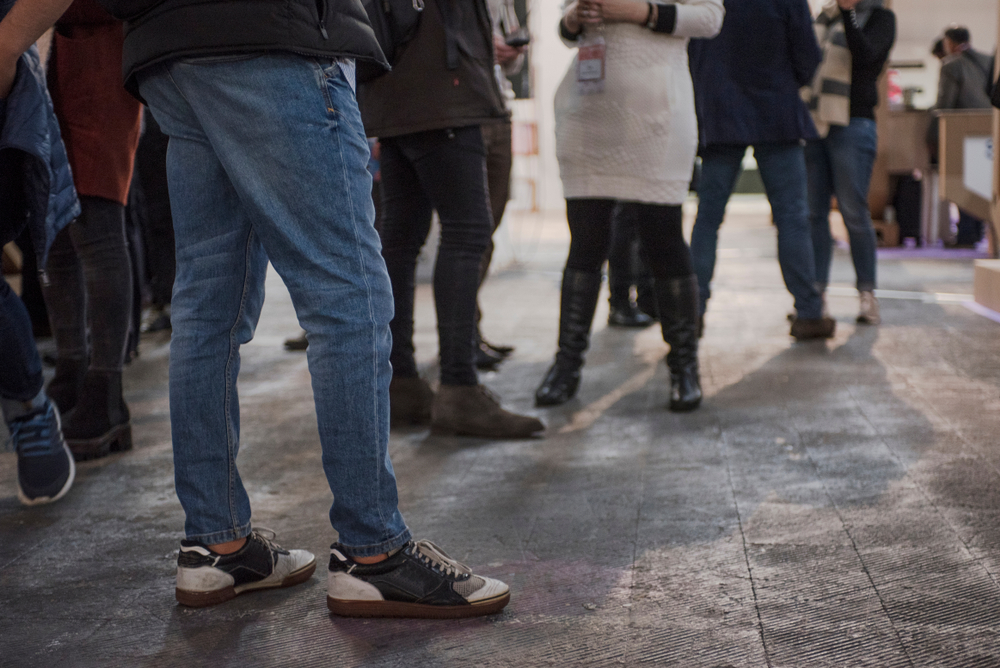In his May 12 ministerial statement on the economy, Josh Frydenberg gave a summary of the impact of the coronavirus crisis on Australian citizens. He spoke of the tragic loss of life, the stress on separated family members, and sudden unemployment. Then he moved to an account of the impact on ‘the economy.’ This was a much lengthier part of his address.
“Australians know there is no money tree”
Perhaps that’s understandable. He is, after all, the Treasurer, and it is his job to speak about the economy first and foremost. But there was something very telling – and quite typical – about the way the speech was structured and delivered. It was as if the opening remarks about people “doing it tough” were a mere prelude to the much more serious matter of addressing “the scale of the economic shock.”
“Australians know there is no money tree,” he said.
That was a loaded statement, if ever there was one. It’s worth knowing where it came from. In June 2017, then British Prime Minister Theresa May appeared in a special edition of BBC Question Time. A nurse in the audience asked why there had been no pay increase for her profession in nine years. May gave an evasive response and concluded, “There isn’t a magic money tree that we can shake to that suddenly provides for everything that people want.”
The statement became notorious. Nurses in Britain are so badly paid that even those working full time are resorting to food banks to feed their families. And now that the pandemic has hit Britain so badly, they are on the front line in the fight for survival. May’s image of the money tree has come to epitomise a patronising, out-of-touch attitude on the part of politicians. Worse than that, the phrase “the money tree” became code for a certain kind of dishonesty at the heart of economic policy.
Who does this economy actually serve?
Who does this economy actually serve? When those who work in it are told that it is too stressed to provide for them, that they must go without even the most basic necessities in order to allow it to recover, what is actually going on? As we move into a phase of economic recovery following the pandemic, these questions have a new reality and urgency for the millions of ordinary Australians who may face depression conditions in coming months.
Figures released recently on the employment impact of the lockdown show that women will be disproportionally affected. In recent weeks, the participation rate has dropped significantly more for women (4.5%) than for men (2.8%). Many older women have given up hope of ever being employed again. At the same time, women are in the majority in the low-paid occupations of nursing, cleaning and aged care that are both crucial and high risk in the present situation.
Already Liberal backbenchers are calling for a wind-up of the JobSeeker and JobKeeper schemes that have kept many people going, with warnings of “handout dependency”
If the government is determined to implement a bizarre form of triage in which we see a swathe of household bankruptcies in order to avoid a national deficit that is really nothing more than a theoretical abstraction, we will see the kinds of austerity policies that have prevailed in Britain, only worse.
Already Liberal backbenchers are calling for a wind-up of the JobSeeker and JobKeeper schemes that have kept many people going, with warnings of “handout dependency”. In this situation, we need to think differently about our economy and how it can work, and to do so in a way that puts gender equity to the fore.

People queue for Centrelink early in the COVID crisis.
The very idea of “handouts” implies that people are being given something they have not earned and may not deserve. Schemes with elaborate application processes and strict criteria are implemented to exclude unworthy recipients. The thinking behind them is grudging and suspicious. A handout is something handed down, to an economic inferior in a dependent position, a position to which women have traditionally been relegated. It was especially jarring that May directed her remark to a woman, and someone in female-dominated profession. The image of the money tree, with its connotation of things dropping from above, infantilises those who are seen as a burden on the economy, however vital their work may be.
A handout is something handed down, to an economic inferior in a dependent position, a position to which women have traditionally been relegated.
Trickle-down economics is embedded in this same assumption that those in the lower echelons of the workforce are dependents and burdens. Yet if we are looking for infantile mindset, it is surely exhibited by those who believe an abstract entity known as “the market” that somehow provides all things, as long as we continue to grow it.
With the massive impact on patterns of global trading, oil prices and tourism caused by the pandemic, this top-down model of economic thinking is no longer viable. After experiencing the bushfires and the coronavirus as two major crises in succession, it is time to think about rebuilding from the ground up, in a citizen-centred economy with strong local foundations, so that we are more able to fall back on our own resources.
Universal Basic Income, is an idea that is gaining support around the world at this time.
What might this look like? Basic income, sometimes referred to as UBI (standing for Universal Basic Income), is an idea that is gaining support around the world at this time. There are plans to introduce it in Spain, and there have been extensive trials in countries around the world.

Andrew Yang campaigned in the US on universal basic income.
Andrew Yang sought to run for President in the recent US Democrat contest on a platform of economic transformation, at the centre of which was the “Freedom Dividend,” an income of $US1,000 a month to be paid to all adult citizens. A recently concluded trial in Finland involving 2,000 randomly selected young adults received a mixed appraisal, though the mental health benefits were generally acknowledged.
In state of widespread crisis the potential of basic income as a foundation for economic transformation [is profound] as global markets shudder and jolt, and we need to reinvest in local economies.
In state of widespread crisis, though, neither of these examples really captures the potential of basic income as a foundation for economic transformation as global markets shudder and jolt, and we need to reinvest in local economies.
Yang focused on the prospect of a robot revolution creating mass unemployment, but within weeks of the debates in which he made the case, unemployment has hit at unprecedented levels across the US, far more rapidly and from a very different cause.
The Finish study was aimed at helping unemployed individuals with a transition to the work force. But what if the work force itself needs transformation?
The working hours lost with the collapse of the tourism industry and the slow and partial return of hospitality will not just return in response to government pressure on job seekers. We need to think again about what work is, who it is for, and how its benefits can be assessed for reward.
I’ll go into this in more detail in the second part of this post, but let me end with a challenge to Theresa May and Josh Frydenberg. The magic money tree, the one that belongs to an irresponsible vision of getting without giving back is the market economy they are so devoted to preserving.
The real money tree – not magic at all – is the planet itself. It provides everything we need for survival: food, water, air, shelter, clothing, fuel. But only we if do the work of caring for it and giving back.
This is the first of two instalments on universal basic income and its potential benefit to all Australians, in particular women. Part 2 next week.




